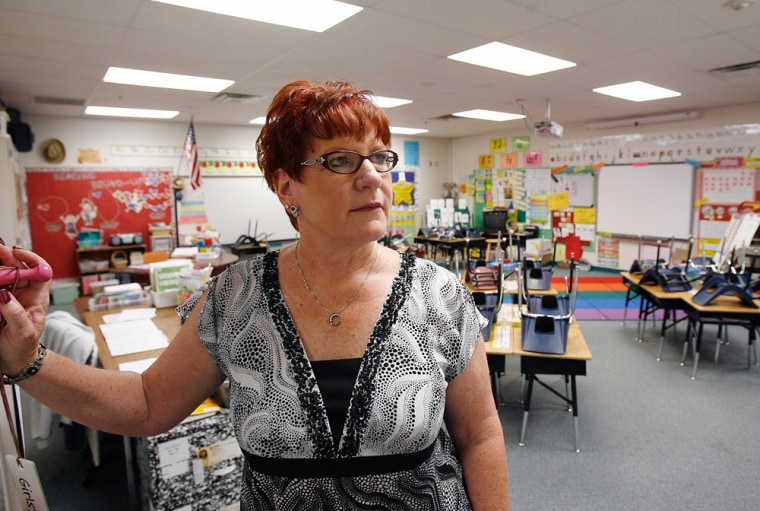Parents are pulling students out of school. Construction workers are abandoning their jobs. Families are hastily moving out of apartments.
Two months after Arizona enacted a law punishing employers who hire illegal immigrants, the law is already achieving one of its goals: Scores of immigrants are fleeing to other states or back to their Latin American homelands.
Gaby Espinoza, who has been unemployed since November, is among those affected. She gave up looking for a job because of the law and may have to return to Mexico.
Espinoza's husband works here legally, but the law means that employers must ask her for papers, and she faces the daily fear of being deported.
"There's no work over there in Mexico," said Espinoza, who has three U.S.-born children. "People there live so poorly. Here, my kids have health insurance and Medicare. Over there, there's nothing."
Jose Perez Leon, a laborer in Phoenix who wants to return to his home in Mexico City, said jobs were plentiful when he came to Arizona about 18 months ago but began to dry up in the last three months.
"I don't like it here anymore because of everything that's happening," he said. "There's no work."
Challenges to the law
The Republican-controlled Legislature and Democratic Gov. Janet Napolitano approved the law last summer out of frustration with federal efforts to curb illegal immigration. It took effect Jan. 1.
The law suspends or revokes the business licenses of violators and was intended to reduce the economic incentive for immigrants to sneak across the border. Illegal immigrants account for an estimated one in 10 workers in Arizona, which is the nation's busiest gateway for illegal immigration.
Business groups have challenged the law. While awaiting a ruling, prosecutors agreed to hold off bringing cases to court until at least March 1.
Republican state Rep. Russell Pearce designed the law to reduce spending on educating and providing health care for illegal immigrants and their families, and to encourage them to leave Arizona.
"Why in the world do (illegal immigrants) think they have a right to break the law? And we are the bad guys for insisting that the law be enforced? The public doesn't agree with that," Pearce said.
School enrollment drops
Many school officials believe the law has played a role in falling enrollment. The state's struggling economy and slumping housing market are other factors. Several districts reported losing more than 100 students at least in part because of the law.
The Isaac School District in central Phoenix, with a student body that is 96 percent Hispanic, lost 500 students, said district spokesman Abedon Fimbres.
The departure of so many students upsets people like Jackie Doerr, who is principal at Andalucia Primary School, which is in a separate district in west Phoenix. She said teachers had made progress teaching English to many of the children.
"They have to leave and start all over again. It's just so frustrating when you see how far they have come," Doerr said. "They are probably going to lose it, especially if they go back to Mexico. They are definitely going to have problems."
Driving Hispanics away
The law has also contributed to rising vacancies in Phoenix. The slow economy and a market overloaded with rental homes have exacerbated the problem, said Terry Feinberg, president of the Arizona Multihousing Association, a rental housing industry group.
Even so, property managers have reported that the law has also driven away Hispanics who are legally in the country, Feinberg said.
The construction industry says some of its workers are leaving, too, for California, Nevada, Colorado or Texas.
Veronica Avalos, an illegal immigrant who has lived in Arizona for 13 years, has been caring for her three children alone since January. Her husband's Arizona employer closed its doors. He now works in San Antonio building swimming pool decks.
Avalos and her children plan to join him in the coming months, but she worries how the move will affect her 11-year-old son, who is partially blind and has mild mental disabilities.
"We need to look for a school, services and programs for him. He has all those things right now," Avalos said. "But I don't know what will happen in Texas."
